#lebanese history
Text


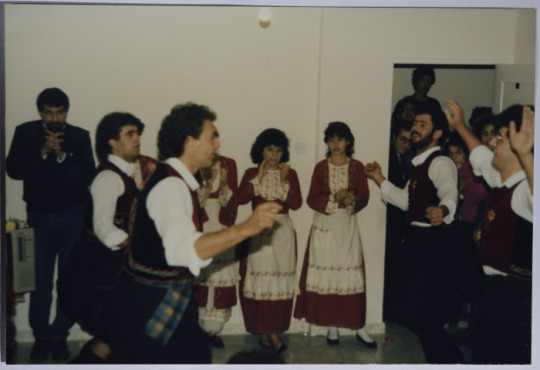


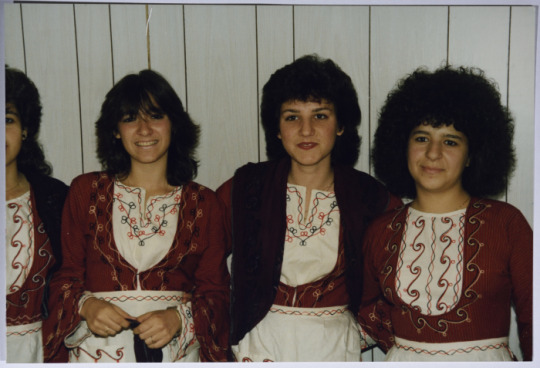
Coloured photographs of a celebration held by the Union of Cyprus Youth for the Wounded from the war on Lebanon while receiving treatment in Cyprus.
Image source and information by Samar Ozrail, "The Palestine Red Crescent Society Collection". Archival Inventory. 30 April- 5 June 2018. The Palestinian Museum Digital Archive.
#cypriot#cyprus#archive#history#photography#union of cyprus#lebanese civil war#lebanese history#cyprus archive#cypriot traditional clothes#cypriot clothes#cypriot dance#cyprus history#cypriot history
54 notes
·
View notes
Text
MAY ZIADEH // POET
“She was a Lebanese-Palestinian poet, essayist, and translator, who wrote many different works both in Arabic and in French. After attending school in her native city Nazareth and in Lebanon, she immigrated along with her family to Egypt in 1908, and started publishing her works in French in 1911. Being a prolific writer, she wrote for Arabic-language newspapers and periodicals, along with publishing poems and books. May Elias Ziadeh held one of the most famous literary salons in the modern Arab world in the year 1921. She was one of the key figures of the Nahda in the early 20th-century Middle Eastern literary scene and a "pioneer of Oriental feminism."”

2 notes
·
View notes
Text

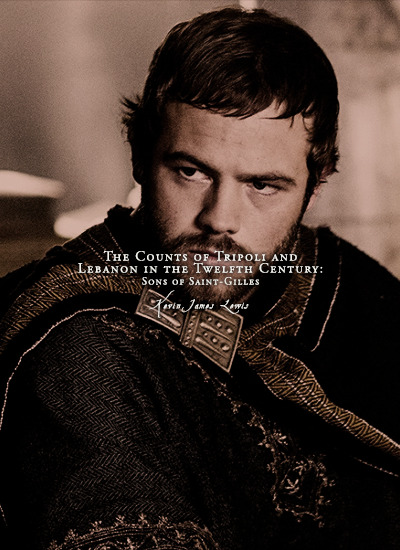

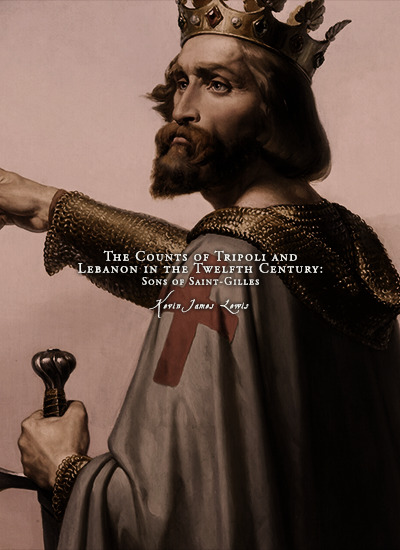


Favorite History Books || The Counts of Tripoli and Lebanon in the Twelfth Century: Sons of Saint-Gilles by Kevin James Lewis ★★★★☆
The Frankish county of Tripoli was not historically important, at least in the traditional sense. Its counts won no particularly great military victories beyond the conquest of the county itself and commissioned no great works of literature. The county’s archives were sacked in an epoch long past and their contents erased from history. Only paint flaking off forgotten church walls, once-mighty fortresses gutted by the fires of modern wars, and crumbling manuscripts in distant libraries stand testament to the fact that the county and its inhabitants existed at all. Yet the study of the county and its rulers is important in that it raises a number of hitherto unasked and unanswered questions regarding the development both of the so-called ‘crusader states’ and of Lebanon and Syria more generally. Though small, the county’s history encapsulates the principal forces that shook and shaped the Latin East as a whole.
The county was not simply the product of European crusaders, but grew amid the verdant valleys of Lebanon, the forbidding heights of the Alawite mountains and the fertile plains that lay between. It was in this Syro-Lebanese context that the counts of Tripoli sought to establish their rule. In many ways, the manifold pressures on the counts were greater than those faced by other Frankish rulers. True, the threat of invasion seems to have been slighter because hostile forces preferred crossing the Jordan into the southern kingdom of Jerusalem, or the Orontes into the northern principality of Antioch, rather than over the mountains that cradled the county. However, the kings of Jerusalem and princes of Antioch did not face the same cultural complexity as in the Lebanon region, which made it all the harder for the counts to negotiate and enforce the terms of their power.
… The present work is arranged chronologically and divided into five chapters. Chapter 1 focuses on two rulers: William Jordan of Cerdanya and Bertrand of Toulouse, rival claimants to what would become the county of Tripoli after the death of the crusader Raymond IV of Saint-Gilles and Toulouse in 1105. Chapters 2 and 3 concern the reigns of Count Pons and his son Raymond II respectively. Chapters 4 and 5 both deal with a single count: Raymond III, whose reign was by far the longest, arguably the most complex and easily the best documented – not to mention most debated. Raymond IV of Saint-Gilles himself, the first self-professed ‘count of Tripoli’, does not receive his own chapter or indeed much special attention at all beyond what is absolutely necessary for the purpose of setting the scene. It has been deemed wise to omit him from the present work since most of his life was spent in the west or else participating in the First Crusade at a time when the very existence of the county of Tripoli had yet to be imagined. As such, the structure of this present work questions Jean Richard’s influential belief that the county of Tripoli was primarily the product of Raymond IV’s ‘action personnelle’. More than one person determined the county’s existence and fate.
#historyedit#litedit#history books#house of toulouse#french history#lebanese history#syrian history#asian history#european history#history#medieval#nanshe's graphics
5 notes
·
View notes
Text
An Ode to Lebanon: A Short Film
#lebanon#mediterranean#my travels#travel#my film#short film#lebanese#byblos#beirut#baalbek#roman ruins#archaeology#history#middle east#culture#khalil gibran#fairuz#elias rahbani#levant#west asia#levantine#ancient mediterranean#ancient history#ancient rome
67 notes
·
View notes
Text

Syrian Commandos - Lebanon 1980's
#lebanese civil war#lebanon#Syrian#1980s#cold war#syria#سوريا syria#Syrian army#military history#لبنان#soldiers#army#miltary#war history#ak47#soldier#photography#tumbler#my tumblr#my post#history
12 notes
·
View notes
Text
youtube
The situation in Lebanon today is bleak. Carved out of the remains of the Ottoman Empire and subjected to years of colonialism-lite administration by France, its economy and infrastructure have been devastated by a long civil war, overlapping occupations by Syria and Israel, and corruption on a massive scale. Since 2019, Lebanon has been in the midst of a severe financial crisis, with widespread unemployment and hyperinflation. Now 80% of the population is poor and Lebanon is on the brink of becoming a failed state.
And yet, JD Harlock, Poetry Editor at Solarpunk Magazine, who lives in Beirut, believes in solarpunk. Join us for this episode to find out how that can be and what day to day life is like in Beirut right now.
You can find JD on X and Instagram at @JD_Harlock.
#solarpunk#Solarpunk Presents Podcast#Beirut#Lebanon#Beirut explosion#Beirut Lebanon#hopepunk#hope despite political disaster#podcast#interview#interview podcast#Ottoman Empire#economics#history#Middle Eastern history#colonialism#poetry#solarpunk magazine#solarpunk poetry#poetry editor#Lebanese civil war#civil war#French colonialism#infrastructure#financial crisis#Lebanon financial crisis#Lebanese financial crisis#Syria#Israel#unemployment
11 notes
·
View notes
Text
Speaking of history.
Today also marks 49 years since the start of the Lebanese civil war.
#dougie rambles#personal stuff#history#political crap#middle east#levant#lebanon#israel#palestine#syria#lebanese civil war#fuck Hezbollah#fuck Assad#fuck netanyahu#UNIFIL
5 notes
·
View notes
Photo
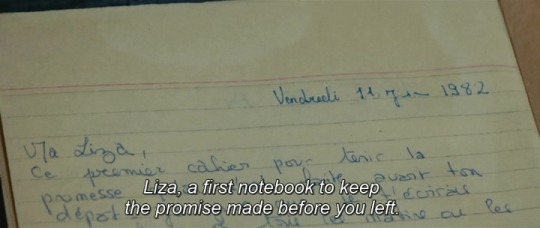
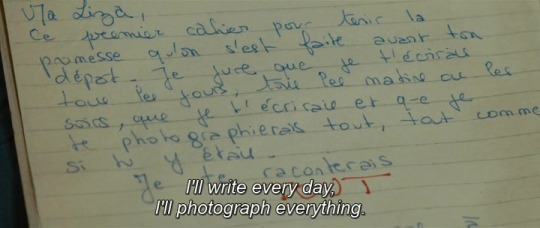

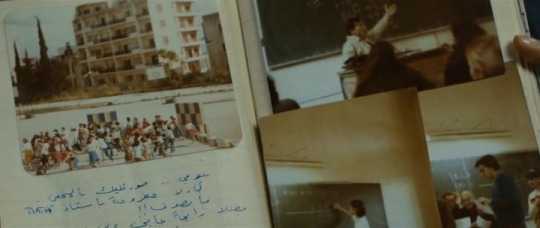
Memory Box (Joana Hadjithomas, Khalil Joreige - 2021)
#Memory Box#Lebanon#Beirut#drama film#Canada#war#Joana Hadjithomas#Khalil Joreige#Rim Turki#Manal Issa#Lebanese civil war#Paloma Vauthier#Montreal#teenagers#XX century history#memories#notebooks#tapes#1980’s#contemporary history#adolescence#photos#photo stories#guerre civile libanaise#guerre du Liban#hidden past#reality#introspection#imagination#photographs
25 notes
·
View notes
Text

#tbd#it's hard to remember sometimes the perceptions people have of the middle east#at least being lebanese and having traveled extensively there gave me some credibility to explain to some of my friends and coworkers#the nuances and history of what's happening#but it's miserable to realize there are people at work in such powerful positions; who still think it's just sand and camels#fucking disheartening#anyways my family is in north lebanon so they're safe for the time being and im hoping it stays that way
13 notes
·
View notes
Text




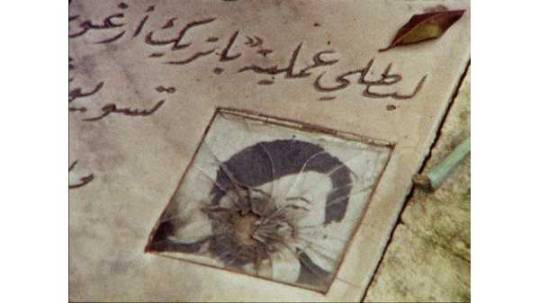
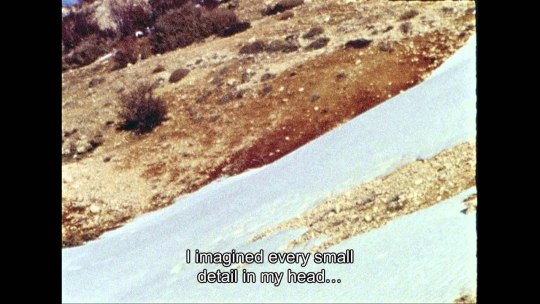
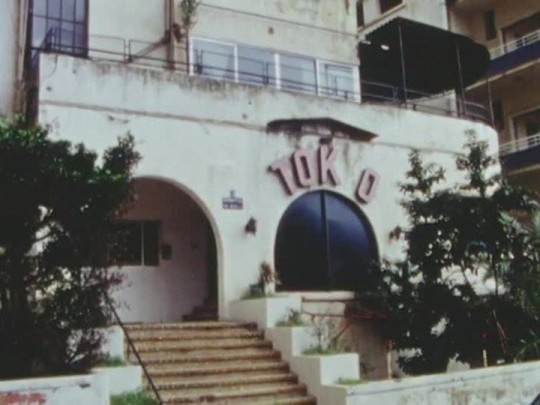
#Eric Baudelaire#Fusako Shigenobu#Palestinian Liberation#Documentary#Red Army#Radical Women#Revolutionary History#Masao Adachi#May Shigenobu#Japanese Revolution#Beirut#Lebanese Revolution#Communism#Japanese Directors
41 notes
·
View notes
Text
spanish speaking oomfies what spanish dialect is the equivalent of the Egyptian arabic dialect in your opinion...
#to give context: egyptian dialect is generally the most understood dialect in the Arab world#this is bc there are too many Egyptians in the world but also bc egyptian media dominates Arab media#but like linguistically we're very different from other dialects tbh like if it weren't for media and numbers no one would understand us#also ngl non egyptian diaspora Arabs would disagree w egyptian being the most widely understood and would argue shami arabic is....#I genuinely think this only applies to western diaspora bc anything Arab in North America is Lebanese or syrian bc of immigration history#anyways this is a lot of info but what I'm actually asking for is the most widely spoken spanish dialect kjfdkjlasdfkjl#I've been wanting to learn spanish for a while but one thing stopping me is the dialectical differences so yea lmao
15 notes
·
View notes
Text
I think I accidentally foreshadowed my own life 🐬🌈💖🎀
#when i was in like. 2nd??? 1st??? grade i had a family history project and i wrnt on this deep dive and i was like ok yowza thags fun#and i learned i was almost 50% lebanese. crazy times it was so silly and then i vividly remember sitting on my friends bed playing with#shopkins and i donf know why??? but i blurted out “im lesbian!!!” out of nowhere (unknowing of what lesbian even meant) because i could not#say lebanese.#now lookie.#i think ahout this from tkme to time#georgies a yapper
0 notes
Text
I think L'elisir is one of the only operas that I truly consider directing (followed closely by La bohème), and I just wanna talk about the ideas I have for this:
So there was this idea initially pitched by the host of the podcast Sex, Drugs and Opera, about giving it a sitcom format, i.e. mixing laugh tracks (and also applause, boos, awws, etc.) into the recit and encouraging audience participation (I had the idea of introducing a floor manager onto the side of the stage), all that.
But because this is an opera that happen literally anytime and anywhere (The 50s? Check. A beach? Check. A party among uni students? Check.), I also had the idea of moving the setting to Mount Lebanon (well, it's my country, after all) in the same time period as the original (I guess around ~1832 or something, the time during which the opera premiered), because at the time, it was a semi-autonomous emirate that operated on a feudal system similar to what we more or less see in the opera proper. Nemorino would easily be a fallah (فلّاح, a peasant), Adina would be a muqata'ji (مقاطعجي, landowner. Note that this is a masculine noun, and apparently there is no feminine form for it because patriarchy. But this is opera, and we don't care!) (Note: while it's true that fallahs were mostly Maronite and muqata'jis were mostly Druze, there were obviously exceptions, and this is something that doesn't really matter. Until we reach the costume department, I guess), and maybe Belcore could be an Ottoman soldier...
#raya reflects#raya brainstorms#l'elisir d'amore#if i directed opera#i only ever took one proper lebanese history course so please bear with me#(as a lebanese?? scandalous. i know. but tell that to the private school systems i was raised in.)#maybe i can combine both ideas? who knows?
0 notes
Text
Israel won, and then lost. On September 14, Bashir Gemayel, the pro-Israel head of the Christian Phalangisst militias and newly designated president of Lebanon, was assassinated by Syrian agents. The IDF moved into West Beirut to prevent PLO units left behind from regrouping. On September 16, Phalangist fighters moved into Sabra and Shatila, two refugee camps in West Beirut, and massacred hundreds of Palestinians. One Phalangist in spiked shoes stomped a baby to death.
Though no Israelis were involved in the slaughter, the IDF had allowed the Phalangists to enter the camps, assuming their mission was to fight the remaining PLO forces there. And the IDF had provided flares to help the Phalangists to identify PLO fighters. World outrage was directed against Israel. "Goyim kill goyim," Begin was reputed to have said bitterly, "and they blame the Jews."
This time, many Israelis shared the world's outrage. Even if Sharon and IDF commanders hadn't known what the Phalange intended to do, they should have suspected: in Lebanon, massacre was the preferred method of retaliation. Israelis shouted at each other on street corners: You've disgraced the Jewish people! You're encouraging our enemies! One Israeli woman, a Holocaust survivor, refused to let her son in the front door when he returned home on leave from Lebanon until he assured her that he hadn't been near the camps. When Begin emerged from a synagogue in Jerusalem on Rosh Hashanah, demonstrators shouted, "Murderer!"
Peace Now announced a protest rally in Tel Aviv to demand a commission of inquiry. In the greenhouse in Ein Shemer, Avital and his kids prepared banners.
"I'm not going," said Avital's wife, Ada. "Why do we always have to blame ourselves? Arabs massacred Arabs. let's hear some self-criticism from our Arab neighbors for a change."
"You're right," said Avital. "But this whole war is rotten, and this is a chance to bring down the government."
Ada relented, but on this condition: she would bring a poster demanding that Arabs also demonstrate for peace. "And stay close to me," she said.
Hours before the rally began, the Square of the Kinds of Israel in Tel Aviv was already filling with israelis desperate to be cleansed from the shame. There were hand-written signs: "What Else Has to Happen?" "If I Forget Sabra and Shatila, May I Forget Jerusalem." "Why Did My Son Die?" And many Israeli flags.
The MC, actress Hannah Meron, stood on an artificial leg: she had lost a leg in a terrorist attack. "I refuse to live in shame," she told the crowd of hundreds of thousands, referring to Sabra and Shatila.
In the density of bodies, Ada got separated from Avital. Acutely nearsighted, she perceived the crowds as a devouring blur.
Ada held up her dissenting sign: "Where Are the Peace Protests in Umm al-Falm?"—an Arab Israeli town near Ein Shemer. Protestors mistook her for a right-wing provocateur. What is she doing here? someone demanded. You don't belong here, someone else said. Ada wanted to say: I'm from your camp! But why do we all have to think the same way, just like the right?
But her voice caught, and she couldn't get out the words.
from "Part Four: Middle Age (1982–1992)" in Like Dreamers: The Story of the Israeli Paratroopers who Reunited Jerusalem and Divided a Nation by Yossi Klein Halevi, pp. 190–191
#child murder tw#i love this book bc its depiction of the different facets of israeli thought propose so many different launching off points for discussion#and research. for example this really led me to want to learn about arab peace movements in the region and read more perspectives by them#specifically. if anybody has any recommendations please let me know#peace activism#like dreamers: the story of the israeli paratroopers who reunited jerusalem and divided a nation#yossi klein halevi#reading list#sabra and shatila massacre#lebanese civil war#1982 lebanon war#palestinian liberation#palestinian history#היסטוריה של ארץ ישראל#היסטוריה של מדינת ישראל
0 notes
Text
A reminder that the 'Palestinians for Trump' campaign is nothing close to unprecedented:
Though there's only been one prior folly to match, or exceed it, in the long sad history of Palestinian leaders failing their people by unerringly seizing on the path of the greatest self-destruction on a scale of collective suicidal stupidity. Namely the dumbfucks in 1990, including the then-head of the PLO, who decided that when a certain Saddam Hussein decided to make Kuwait Iraq's 19th province that the annexation was going to stick. They spent the war actively enabling the Iraqi occupation and looting of Kuwait that did happen, if not to the degree wartime propaganda exaggerated that it did.
And then when the Emir got his throne back, the Iraqi Army proved to be the kind of shambolic force that with two superpowers and an infinite Soviet budget of weaponry narrowly survived hordes of suicidal teenagers with keys around their necks against a force actually competent unlike the Iranian army of the 1980s (no, bravery is not competence).......well, suddenly the Emir decided he didn't want a huge pro-Iraqi fifth column when Saddam was still his next door neighbor and they were expelled for that.
It is very specifically Palestinian-Americans running this "Muslims for Trump" chickens for KFC campaign, because that is what their self-appointed leaders have always found ways to do when this shouldn't repeat itself on this unerring scale, and yet it does and has. Few people have paid as steep a price for the vainglory of self-appointed overlords as Palestinians have done, do, and continue to do.
#palestine#kuwait#palestinian history#the decisionmaking here will always stand as one of Palestine's biggest own goals#rivaled only by Black September and the onset of the Lebanese Civil War#there are very good reasons why nobody in the Arab world is lifting a finger for the Palestinians and only sending rhetoric#Iran is but Iran lest people forget is not in fact Arab and Iranians get very nasty when this confusion is made
1 note
·
View note
Text
youtube
Rogér Fakhr - Had To Come Back Wet (1978)
---
youtube.com/watch?v=YYbUnoNLhIs
#lebanon#lebanese#music history#middle east#middle eastern#music#1970s#70s#1978#1900s#20th century#Youtube
0 notes